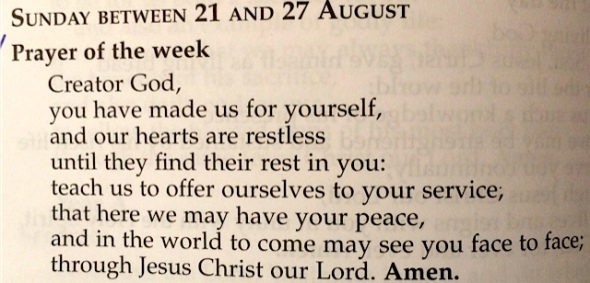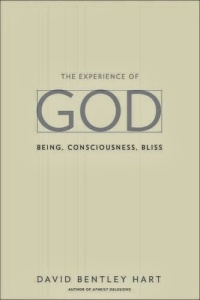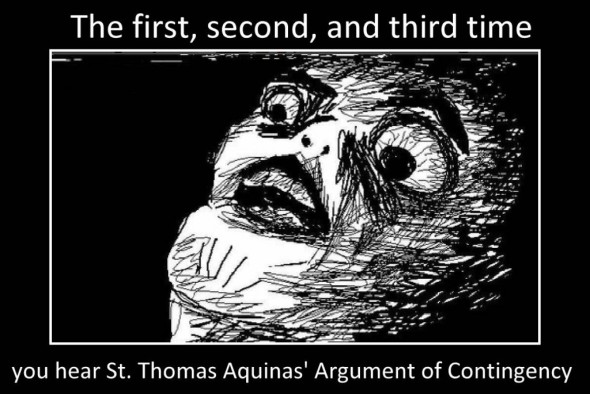Scientists Should Tell Lawrence Krauss to Shut Up Already – Edward Feser
Posted: October 12, 2015 Filed under: Uncategorized | Tags: Aquinas, Atheism, Atheist Delusions, existence of God 2 Comments There is an excellent article by Edward Feser on the false dichotomie of Science and God published by The Witherspoon Institute here
There is an excellent article by Edward Feser on the false dichotomie of Science and God published by The Witherspoon Institute here
The point for present purposes is just this: From the point of view of the main arguments for God’s existence, it is a mistake to think that the place to look for evidence of God is within the domain investigated by science. Rather, the place to look is somewhere more fundamental—at what any possible science must itself presuppose.
The Rules of the Game
Think of it this way: you can’t find out why checkers boards exist by looking at the rules of checkers themselves, which concern only what goes on within the game. The rules tell you how each piece moves, how the game is won, and so forth. But why are the pieces governed by these rules, specifically, rather than others? Why do any checkers boards exist at all in the first place? No scrutiny of the rules can answer those questions. It is impossible to answer them, or indeed even to understand the questions, unless you take a vantage point from outside the game and its rules.
Similarly, what science uncovers are, in effect, the “rules” that govern the “game” that is the natural world. Its domain of study is what is internal to the natural order of things. It presupposes that there is such an order, just as the rules of checkers presuppose that there are such things as checkers boards and game pieces. For that very reason, though, science has nothing to say about why there is any natural order or laws in the first place, any more than the rules of checkers tell you why there are any checkers boards or checkers rules in the first place.
Thus, science cannot answer the question why there is any world at all, or any laws at all. To answer those questions, or even to understand them properly, you must take an intellectual vantage point from outside the world and its laws, and thus outside of science. You need to look to philosophical argument, which goes deeper than anything mere physics can uncover.
Krauss’s argument is as inept as that of someone who thinks that checkers game boards have no cause, because we can find no reference to such a cause in the rules of checkers. Such a person is looking in the wrong place, just as Krauss is looking in the wrong place when he confines himself to science to find some reason to affirm a divine uncaused cause.
#favecollect – A Prayer Book for Australia
Posted: October 1, 2015 Filed under: Church, Random Images | Tags: Anglican church Leave a commentWhat is the opposite of faith? – Kim Fabricius
Posted: June 29, 2015 Filed under: The Good News According to...., Theology | Tags: faith Leave a commentSermon for the 4th Sunday after Pentecost (text: Mark 4:35-41) 
What is the opposite of faith?
Let’s start with the Protestant no-no: works. We are justified, put right with God not by works but by faith, faith alone – sola fide – isn’t that, as Luther put it, the doctrine by which the church stands or falls? And wouldn’t Calvin and Wesley agree? Well, yes, but … Luther was citing Paul, but during the last half century – through a better understanding of the thought-world of first century Judaism – it’s now become pretty clear that what Paul meant by “works” and what Luther meant by “works” are not identical.
The Experience of God. Being, Consciousness, Bliss. – a review by Nathan Duffy
Posted: April 24, 2015 Filed under: Want to read | Tags: Atheism, Christian Apologetics Leave a commentDavid Bentley Hart is a favourite theologian of mine. I adored his easy to read Atheist Delusions. The Christian Revolution and Its Fashionable Enemies. His newer book The Experience of God: Being, Consciousness, Bliss looks like a much harder book with heavy philosophical and metaphysical topics covered but a must read for the student interested in serious theistic metaphysics and current debates surrounding the philosophy of materialism. For a lazy sneak peek, Nathan Duffy works his magic in a review on his blog Dogmatic Enigmatics.
He writes:
Astonishingly, given the somewhat deceptive (or perhaps inept) marketing of the book, this was David Bentley Hart’s best book to date, which is saying something monumental. What neither the title, nor the jacket cover, nor even the blurb reviews reveal is that the book is primarily a relentless, blistering attack on the superstitions and credulous fideisms of materialism. Over and against this decrepit and impoverished philosophy of reality, and in response to its inept attempts to demystify the world, Hart turns to the common deposit of theistic metaphysical tradition for the arresting and compelling antidote.
That awkward moment when someone asks you what you do. Best. Ansa. Eva.
Posted: March 21, 2015 Filed under: Church | Tags: Anglican church, church, minister Leave a comment
Conceptions of God: Feser
Posted: October 2, 2014 Filed under: Apologetics, New Atheism, Theology | Tags: Aquinas Leave a comment“Many secularists seem hell-bent (if you’ll pardon the expression) on pretending that religious people in general believe in a God so anthropomorphic that only a child or the most ignorant peasant could take the question of His existence seriously even for a moment.” [SNIP] ” To understand what serious religious thinkers do believe, we might usefully distinguish five gradations in one’s conception of God. 
1) God is literally an old man white a white beard, a kind if stern wizard-like being with very human thoughts and motivations who lives in a place called Heaven, which is like the places we know except for being very far away and impossible to get to except through magical means.
2) God doesn’t really have a bodily form, and his thoughts and motivations are in many respects very different from ours. He is an immaterial object or substance which has existed forever, and (perhaps) pervades all space. Still, he is, somehow, a person like we are, only vastly more intelligent, powerful, and virtuous, and in particular without our physical and morel limitations. He made the world the way a carpenter builds a house, as an independent object that would carry on even if he were to “go away” from it, but he nevertheless may decide to intervene in its operations from time to time.
3) God is not an object or substance alongside other objects or substances in the world; rather, He is pure being or existence itself, utterly distinct from the world of time, space, and things, underlying and maintaining them in being at every moment, and part from whose ongoing conserving action they would be instantly annihilated. The world is not an independent object tin the sense of something that might carry on if God were to “go away”; it is more like the music produced by a musician, which exits only when he plays and vanishes the moment he stops. None of the concepts we apply to things in the world, in clouding to ourselves, apply to God in anything but the analogous sense. Hence, for example, we may say that God is “personal” insofar as He is not less than a person, the way an animal is less than a person. But God is not literally “a person” in the sense of being one individual thing among others who reasons, chooses, has moral obligations, etc. Such concepts make no sense when literally applied to God. Read the rest of this entry »
Propositions on Christian Theology: A Pilgrim Walks the Plank
Posted: April 29, 2014 Filed under: Currently reading..., The Good News According to...., Theology | Tags: theology Leave a commentBrilliant, pithy reading from a United Reformed Church minister in England.
That is all.
In this little book, a kind of contemporary enchiridion, Kim Fabricius engages some of the main themes of Christian theology in prose, poetry, and song (his own hym
ns). It does not aim to be systematic or comprehensive; rather it goes straight to the main contested areas in the church today, the red-button issues in doctrine, spirituality, culture, ethics, and politics. Fabricius’s imaginative vision and lively conversational style moving freely between the interrogative and the polemical, the playful and the profound invite us all to the vertiginous experience of faith. The book’s concise format and no-nonsense approach make it a perfect guide for inquiring Christians as well as committed disciples and an ideal discussion-starter for both church groups and college classes. The author’s passionate commitment to a self-critical faith is a provocative invitation to religion’s cultured despisers to join him if they dare on the plank.
For a sneak peak web version try Ben Myer’s blog
http://www.faith-theology.com/2006/09/propositions-by-kim-fabricius.html
Aquinas and Aristotle on metaphysical proof for the existence of God
Posted: January 29, 2014 Filed under: Apologetics, Memes, Random Images | Tags: Aquinas, Aristotle, existence of God Leave a commentO’Donovan on the Anglican virtue of moderation
Posted: December 12, 2013 Filed under: Church, Currently reading... | Tags: Anglican church Leave a commentWe will learn from them [Cranmer and his contemporaries] better than from Anglicans of any other age of the distinctive theological virtue in which Anglicans have sometimes spoken as though they had a monopoly, the virtue of ‘moderation’. The word is appropriate enough, though it need to be used with some subtlety and not a little irony. The popular account of Anglican moderation, that it consisted in steering a steady middle path between t
he exaggerated positions of Rome on the one hand and Geneva on the other, simply will not bear examination. As our knowledge of late mediaeval thought grows greater, forwarded by the scholarly studies of the last half-century, it becomes more apparent that Calvinism, on all issues except that of church-order, took as much of the late-scholastic tradition into its system as any of the other schools of Protestantism. Its doctrine of predestination can arguably claim to be less ‘reformed’ – in the sense of being more mediaeval – than that of the Council of Trent! There was nothing particularly ‘middle’ about most of the English Reformer’s theological positions – even if one could decide between what poles the middle way was supposed to lie.
Their moderation consisted rather in a determined policy of separating the essentials of faith and order from adiaphora. Of all the continental spirits, they had learned most deeply, perhaps, from Melanchthon. ‘Surely odious it must have been, ‘ Hooker exclaims, ‘for one Christian church to abolish that which all had received and held for the space of many ages, and that without detriment unto religion so manifest and so great, as might in the eyes of unpartial men appear sufficient to clear them from all blame of rash and inconsiderate proceeding, if in fervour of zeal that had removed such things.’
Anglican moderation is the policy of reserving strong statement and conviction for the few things which really deserve them. Yet that does not mean that it is incapable of conveying certainties. Think of the church music of the Tudor period, after its composers had turned over to English and put away their soaring cloud-peaks of polyphonic sonority. It moves along at a deliberate, purposeful walking pace – not dancing like Purcell, not clapping its hands like Handel, not swelling its breast like Stanford. It articulates its text clearly in cool and measured understatement, without embellishment. It conveys confidence and assurance; and it can even suggest excitement, though under the strongest self-restraint.
O’Donovan, Oliver. On the Thirty-Nine Articles. Conversations with Tudor Christianity. SCM Press. 2nd Ed. 2011. Pg 8
Best. Blessing. Eva
Posted: November 17, 2013 Filed under: Church Leave a commentMay God the Father, who created you,
have mercy on you and bless you.
May God the Son, Jesus Christ, who conquered death for you,
have mercy on you and bless you.
May God the Holy Spirit, who sanctifies you,
have mercy on you and bless you.
May God almighty, the Father, the Son, and the Holy Spirit,
grant you eternal rest and peace. Amen.
– A Prayer Book for Australia 1995 pg 704






